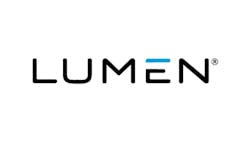Lumen sharpens enterprise focus with consumer fiber sale to AT&T
Lumen has taken a key step towards becoming an enterprise-centric service provider with its recent sale of its Quantum Fiber consumer broadband business to AT&T.
AT&T will acquire Lumen’s Mass Markets fiber-to-the-home business for $5.75 billion in cash, enabling the service provider to accelerate its ongoing fiber broadband build.
This acquisition includes approximately 95% of Quantum Fiber, approximately four million enablements, and nearly one million subscribers as of March 31, 2025. Based on the first-quarter 2025 results, these customers are expected to generate over $750 million in annualized revenue. Lumen expects to build out new fiber-enabled sites at a similar pace to 2024 through the end of 2025.
For Lumen, the deal enhances its financial flexibility, enabling it to focus its core attention on helping enterprises migrate to cloud and AI-based architectures.
Chris Stansbury, CFO of Lumen, said that the deal “gives us the financial freedom to double down on where we have the right to win, leveraging our expertise alongside our massive network scale to power the digital future for enterprise.”
He added that selling the FTTH business to AT&T also delivers significant financial benefits, enabling us to deleverage, simplify, and strengthen our balance sheet, while reducing the capital intensity of our business and enhancing cash flow.
Retaining key assets
While Lumen is selling off a large fiber-based business, the telco will retain several key assets, including its fiber backbone network, central offices, and land and buildings it currently owns.
Additionally, Lumen will continue to serve enterprise and wholesale fiber customers in all geographies. Finally, Lumen will retain and care for its existing copper network, which primarily serves consumer customers.
“We're retaining the network infrastructure that's critical to our future, and that includes our national, regional, state and metro level fiber networks as well as our enterprise and wholesale relationships in all markets and our central offices and associated real estate,” Stansbury said. “We also retain the copper consumer business.”
Footprint expansion ahead
As Lumen moves forward with its enterprise focus, a big part of Lumen’s enterprise service mission will be to expand its fiber network.
Following the $8.5 billion in AI-driven networking contracts with hyperscalers, Lumen plans to scale its network to 47 million intercity fiber miles by 2028.
Additionally, Lumen will continue to scale the Lumen Digital platform to enhance customer experiences for businesses.
Finally, Lumen will strategically leverage the combination of its physical infrastructure and digital platform to deliver increased performance, capacity, intelligence and security through new, innovative network architectures such as Direct Fiber Access (DFAs), Cloud On-ramps, and Multicloud Gateways.
Last year, Lumen inked a deal with Corning that reserves 10% of Corning's global fiber capacity for each of the next two years to interconnect AI-enabled data centers.
This is a significant deal for Corning as it will serve Lumen’s U.S. intercity network, which includes diverse routes to more than 50 major cities nationwide.
Kate Johnson, CEO of Lumen, said that the deal “marks an important step forward in Lumen's transformation from a legacy telecom to focusing on what enterprises need, where the world is going, and where we can lead.”
She added that two key trends drove this deal. “The first, AI has emerged as the critical -- mission-critical technology for enterprise,” Johnson said. “And secondly, the demand curves for consumer wireless and fiber are rapidly converging.”
Cloud direct fiber access
Lumen’s move to expand its network focuses on providing connections to all central cloud and technology providers.
The service provider’s plans to pivot to an enterprise-focused model were highlighted in its first-quarter earnings call. A key part of this is its Private Connectivity Fabric (PCF) platform, which comprises a mix of services, including dark fiber, wavelengths, Dedicated Internet Access (DIA), Ethernet on Demand, Internet on Demand, and management services.
At the heart of these new relationships is Lumen’s move to provide fiber access to cloud providers. Johnson said direct fiber access positions Lumen to offer a differentiated connectivity experience.
“Traditional cloud connections to enterprises rely on space and cross-connects provided by third-party intermediaries or carrier-neutral facilities,” Johnson said. “We've leveraged our network ecosystem to reinvent cloud connection with direct fiber access, the ability to connect directly from Lumen's fiber into the cloud providers, which not only simplifies network operations for us and our customers, it also significantly enhances network performance, security and scalability.”
It continues to make progress in garnering deals with cloud providers.
Lumen announced plans last summer to implement the Microsoft Azure cloud computing platform. In turn, Microsoft will implement Lumen’s custom network, Private Connectivity Fabric, to expand its network capacity and capability, meeting the rising demands of its data centers.
More recently, Lumen announced a partnership with Google Cloud, providing direct fiber access to customer data centers through Lumen's metro fiber network, offering dedicated connectivity with speeds of up to 400 Gbps.
But connectivity is only one part of the work it is doing with Google. Lumen is also integrating with Google’s new cloud WAN solution.
Johnson said this integration is “helping customers reduce latency by more than 40% when connecting to SaaS applications from a global footprint.”
She added that “both of these initiatives will lead to faster deployments, enhancing performance, reliability, and cost savings as customers deploy AI at scale.”
Lumen is moving forward with the build-out of the $8.5 billion PCF projects that it announced last year. The provider has 57 different ILA sites under construction and is on track to complete the first tranche of 24 locations on time and budget in the second quarter of 2023. Additionally, it has deployed new Corning 864-count fiber on seven different routes.
Johnson said that it is in talks with various customers for its next tranche of PCF deals.
“While the market is a bit uncertain, you heard some of our partners confirming on their earnings calls, their intention to continue to spend capital for their AI build-out,” she said. “We see that overall PCF demand is still there at both a large and smaller enterprise deal level. We anticipate that trend will continue as these networks are just critical infrastructure for the United States to be a world leader in AI.”
For related articles, visit the Business Topic Center.
For more information on high-speed transmission systems and suppliers, visit the Lightwave Buyer’s Guide.
To stay abreast of fiber network deployments, subscribe to Lightwave’s Service Providers and Datacom/Data Center newsletters.
About the Author
Sean Buckley
Sean is responsible for establishing and executing the editorial strategy of Lightwave across its website, email newsletters, events, and other information products.



